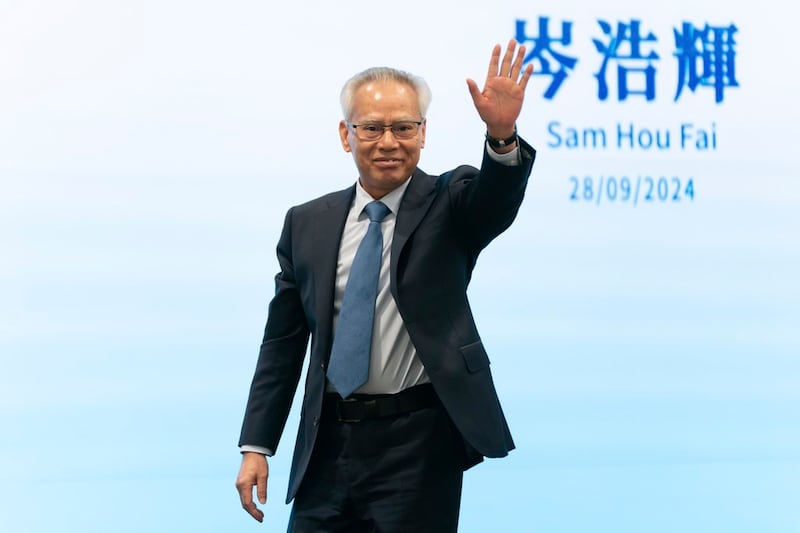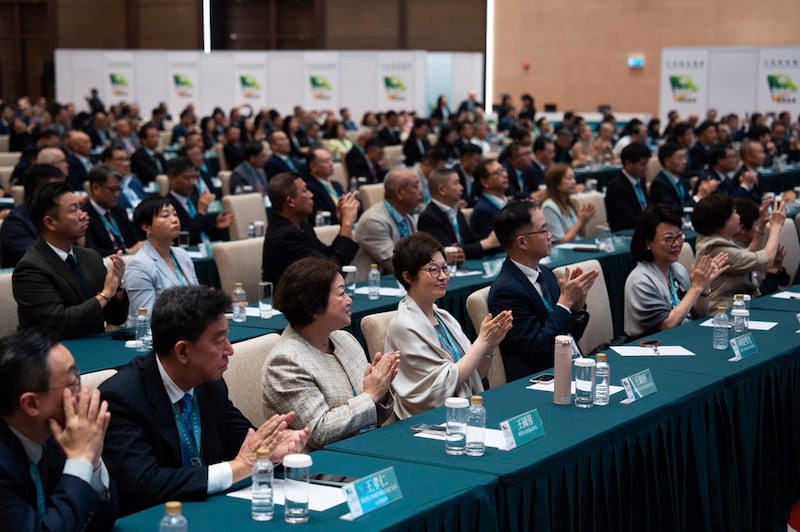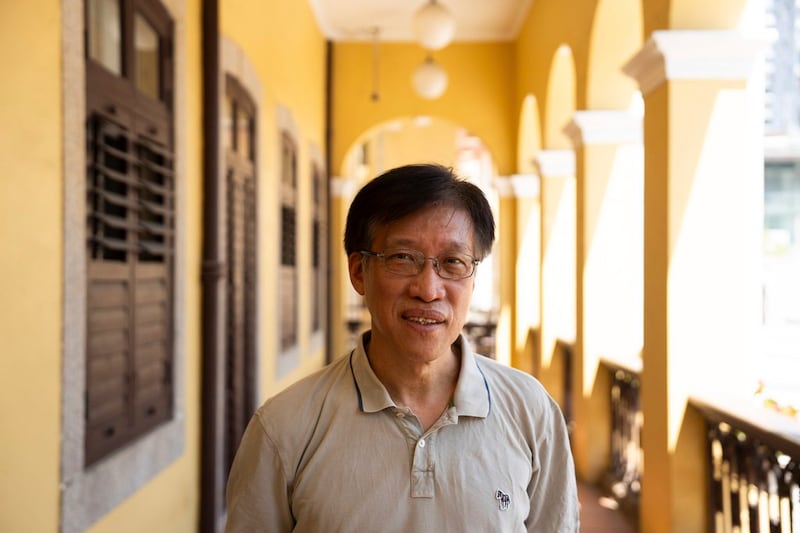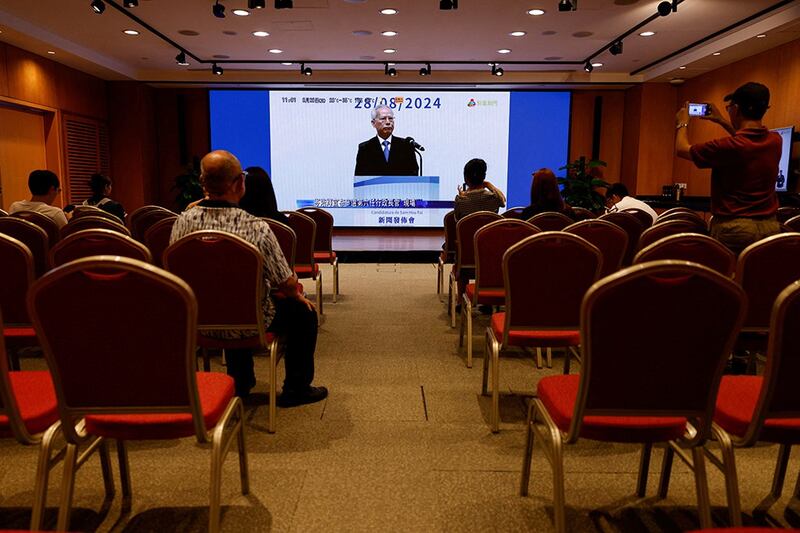A Chinese-born judge who cracked down on the city’s pro-democracy movement has been “elected” leader of the gambling hub of Macau after running unopposed for the role, in a move that many say means the city is now effectively administered by Beijing.
Sam Hou Fai, a former president of Macau’s Court of Final Appeal who was born in neighboring Guangdong province and served as a lawyer in the mainland Chinese judicial system, was chosen in a near-unanimous vote by a hand-picked election committee of around 400 Beijing loyalists on Oct. 13.
Sam was “elected” as chief executive-designate with 394 votes in favor, 0 votes against, and 4 blank votes, or nearly 99% of the vote. He was the only candidate.
Speaking after the results were announced on Oct. 13, Sam vowed to continue the ruling Chinese Communist Party’s clampdown on dissent, vowing to “safeguard national sovereignty, security and development interests.”

Sam also said he would try to diversify the economy of the former Portuguese enclave, which has long been driven by its status as a regional casino hub.
Beijing’s Liaison Office of the Central People’s Government in Macau expressed “warm congratulations to Sam Ho Fai for being elected with a high percentage of the vote,” while Hong Kong leader John Lee congratulated Sam, saying he hoped he would “lead Macau to new heights.”
What’s different about Sam Hou Fai?
Previous leaders of Macau have been born in the city, and picked from among its prominent business families, like incumbent Chief Executive Ho Iat Seng.
While Sam's "one-horse" election follows that of Hong Kong Chief Executive John Lee in 2022, he is the first leader of a former colony to have been born and raised in mainland China.
By contrast, much of Lee’s earlier career as a police officer was served under British colonial rule, starting in the late 1970s.
Many of Macau’s 687,000 residents appeared fairly indifferent to Sam’s selection, the Associated Press reported, saying they didn’t have the right to vote for him anyway.
Why has Sam Hou Fai been chosen?
Political commentators told RFA Cantonese that unlike the prominent business chiefs who have previously led the city, Sam, a graduate of Peking University, isn’t well known by the general public in Macau.
Sam was put forward as the only candidate by Beijing after officials decided they wanted someone with a more intuitive understanding of where the political lines were drawn than a native Macanese might, according to Au Kam San, one of only three pro-democracy lawmakers in Macau’s legislature.

“He understands mainland China better, so [Beijing believes that] he is less likely to do any harm,” Au told RFA Cantonese in a recent interview, adding that Beijing could see him as a better option than a leader like Hong Kong’s John Lee.
Sam isn’t the first mainlander to hold high office in Macau: the city’s current Secretary for Security Wong Sio Chak was also born in Guangdong and attended Peking University, while Secretary for Justice André Cheong was born in Beijing and also attended university there.
Political commentators say the trio are among a group of 13 Chinese officials groomed by Beijing to hold top jobs in the city in what is effectively a progression toward direct rule of the formerly semi-autonomous territory.
Sam also has a background in law enforcement, and dealt with a number of politically sensitive cases while serving as a judge in Macau, including rejecting an appeal on a police ban on a vigil for the victims of the 1989 Tiananmen massacre.

A decision to bar opposition candidates from running in 2021 elections to the city’s legislature was also upheld on his watch.
Why the need to tighten control of Macau?
Beijing insists that repeated waves of mass popular protest movements in Hong Kong calling for fully democratic elections and other freedoms in recent years were instigated by " hostile foreign forces" seeking to undermine its rule by fomenting dissent in Hong Kong.
It first imposed a draconian national security law on Hong Kong in the wake of the 2019 protest movement, ushering in an ongoing crackdown on peaceful dissent and political opposition that has seen more than 1,000 arrests under the law, with thousands more under colonial-era public order and sedition laws.

The government recently passed a second law, known as Article 23, to broaden the scope of the crackdown.
Macau never experienced the same levels of mass political opposition that were seen in Hong Kong, and enacted its security legislation in 2004, five years after the 1999 handover to Chinese rule.
However, it passed legal amendments that broadened the reach of its security law to "prevent interference by external forces" in May 2023, suggesting that China remains concerned about future political opposition in the city.
